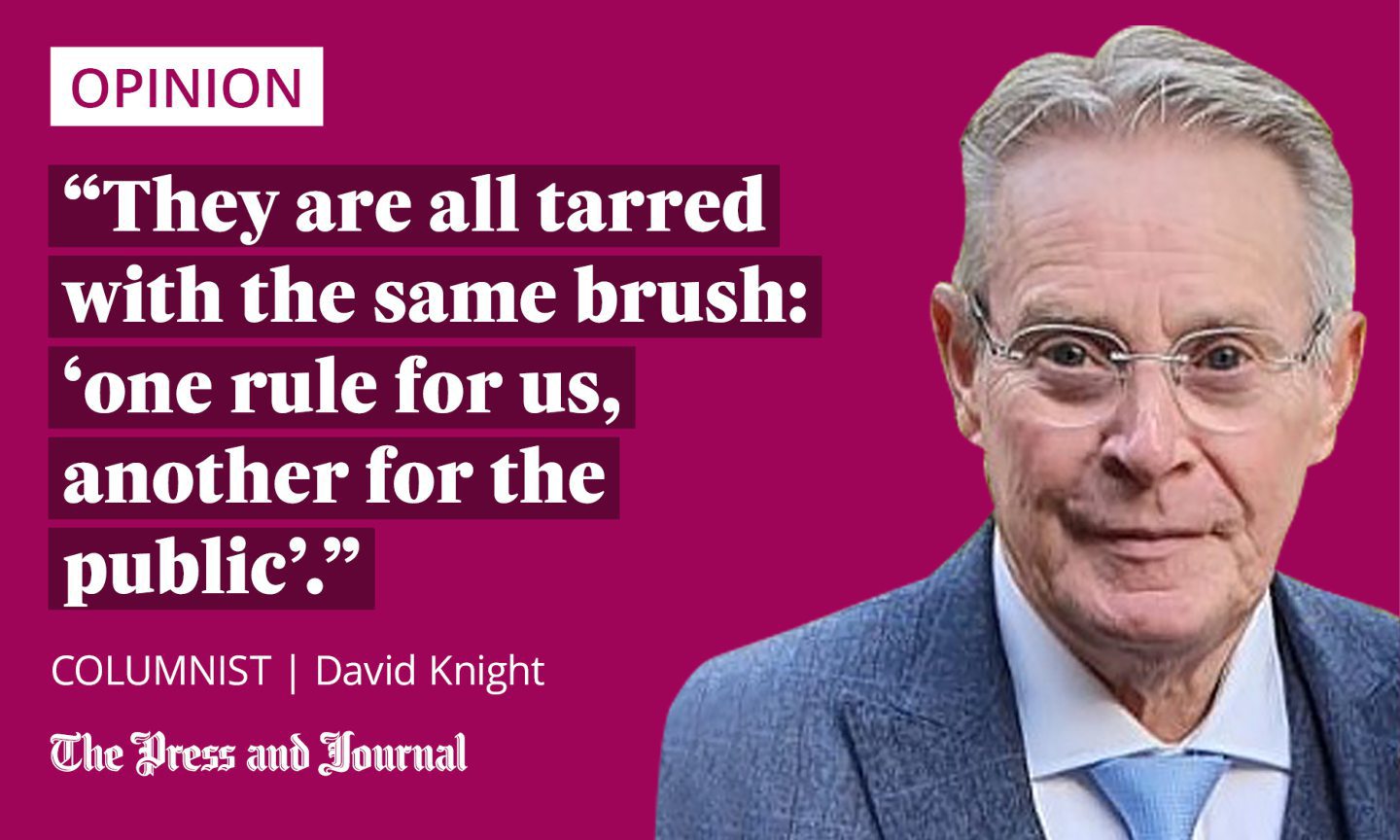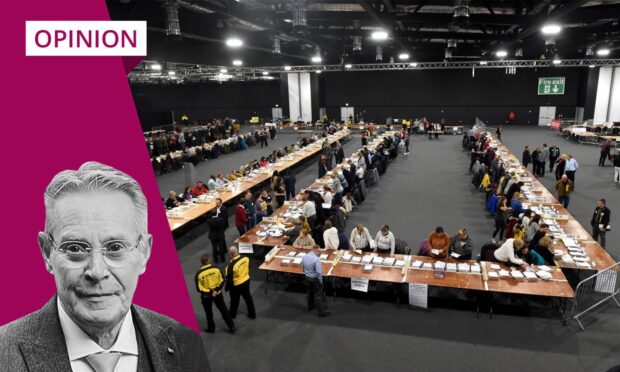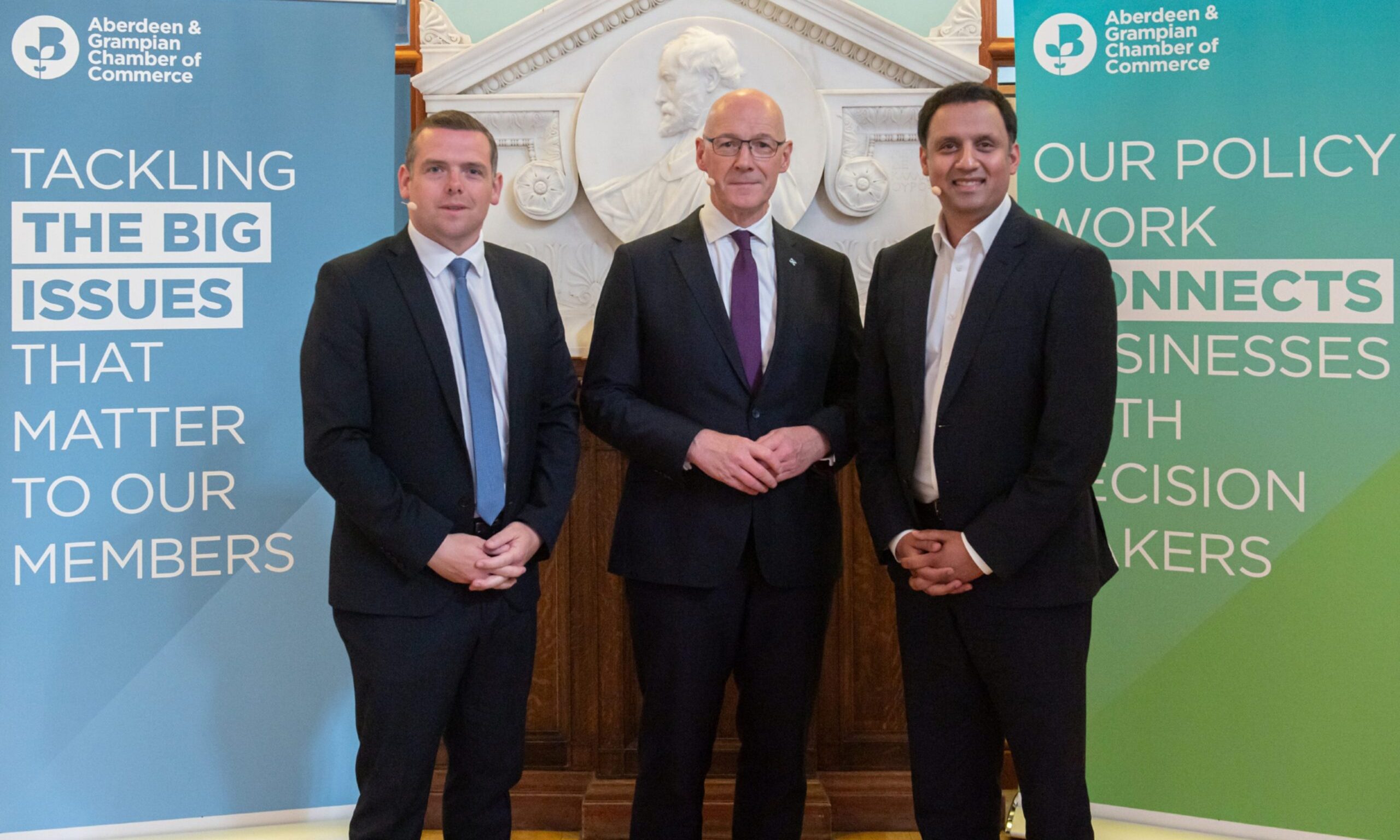I was fresh from asking John Swinney if he thought Scotland was a financial basket case, like Greece.
A little provocative? Yes. Was he ruffled? No.
Swinney – finance secretary at the time – was sitting opposite me for dinner, and didn’t bat an eyelid at my impertinence. He was into his stride in a flash; smooth, confident and reassuring – like an estate agent brushing off the fact that rain was coming through the roof.
The relevance of my question applied to whether or not Scotland could go it alone financially as an independent country after the example of the EU saving Greece from going bust.
It’s now almost the 10th anniversary of this episode, but it still sticks in my mind and overshadows everyday life – especially during this of all weeks, with a momentous general election on Thursday.
A week in which a massive fault line underpinning British politics is appearing to shift away seismically from its established foundations. Away from the Tories and SNP, in other words, according to emphatic and consistent polling.
The private media dinner I attended with SNP bigwigs came in 2014, and was one of a referendum series with major parties. The timing was perfect: polling support for the Yes campaign was about to surge past No for the first time – but only briefly, as it turned out.
A key moment: independence was in their anxious, sweaty palms, but slipped out again, as Westminster threw everything, including the kitchen sink, into clutching triumph from the jaws of defeat in the indyref vote.
Leaning up the hotel bar after dinner with a senior SNP figure, I asked if the party could rule forever thanks to independence. After a moment or two, he replied that, in future, voters would have to look past the independence issue, ultimately, and judge success or failure on the party’s domestic record.
Independence never came, but it looks like the day of reckoning has.

I now wonder – a decade on – if that moment in history predicted by the senior advisor can be pencilled in as Thursday July 4, 2024.
Recently, I heard another SNP big name repeat that old mantra: “Vote SNP to stop the Tories.” But the Conservatives have shot themselves in both feet before the ballot.
It only remains to be seen if the SNP has dug its own grave, too. They are like peas in a pod.
It’s ironic, isn’t it, that the SNP has morphed into something similar to Nicola Sturgeon’s “detested” Tories? They both look worn out after long, ineffectual and alienating years in power. Other than their hardcore support, the mainstream voting public are also tired and disillusioned.
And then there is a pervading whiff of sleaze and suspicion, from Tory Partygate and alleged insider betting on the July 4 election date to the SNP police fraud investigation and the disgraceful Michael Matheson “old pals act” scandal.
We all know what the best policy is
A lot of election issues are bouncing around on a daily basis, but the most important policy is not written down in any manifestos: honesty.
It’s about being honest with people; it’s on everyone’s lips, as a British social attitudes survey claimed trust in politicians was at an all-time low.
I was struck by how all the leaders – Swinney included – blatantly refused to give straight answers to awkward questions posed by Fiona Bruce on Question Time the other week. I watched party chiefs duck and dive with matching enthusiasm.
A tricky Swinney moment came over his seriously flawed plan to treat a majority of seats won in Scotland as a mandate for independence.
He was asked if he didn’t achieve a majority, would this mean he accepted there was no mandate? It seemed a logical outcome, but it was met with silence.
It is a daft policy because it means that even if his majority was under 50%, he would still claim a mandate. Even Sturgeon, who dreamed the idea up, said a majority of individual votes was what counted as a proper indicator – not election seats, which are distorted and misleading.
Covid WhatsApp cover-ups and poison dripping in from the Post Office inquisition of postmasters intensifies an overwhelming sense of distrust.
It’s not just about bashing the SNP and Tories. Labour was accused by economic experts of not being straight over the reality of spending and tax.
We’ll end up trying to pick the least-worst illusionists in this horror show
It’s a bit like hiring a builder to construct your dream house without being allowed to see the plans.
They are all tarred with the same brush: “one rule for us, another for the public”.
I’d say vote for the Honesty Party, but it doesn’t exist. We’ll end up trying to pick the least-worst illusionists in this horror show.
If Labour does rule for a decade, I suspect we’ll be begging someone else to rescue us by then.
David Knight is the long-serving former deputy editor of The Press and Journal


Conversation